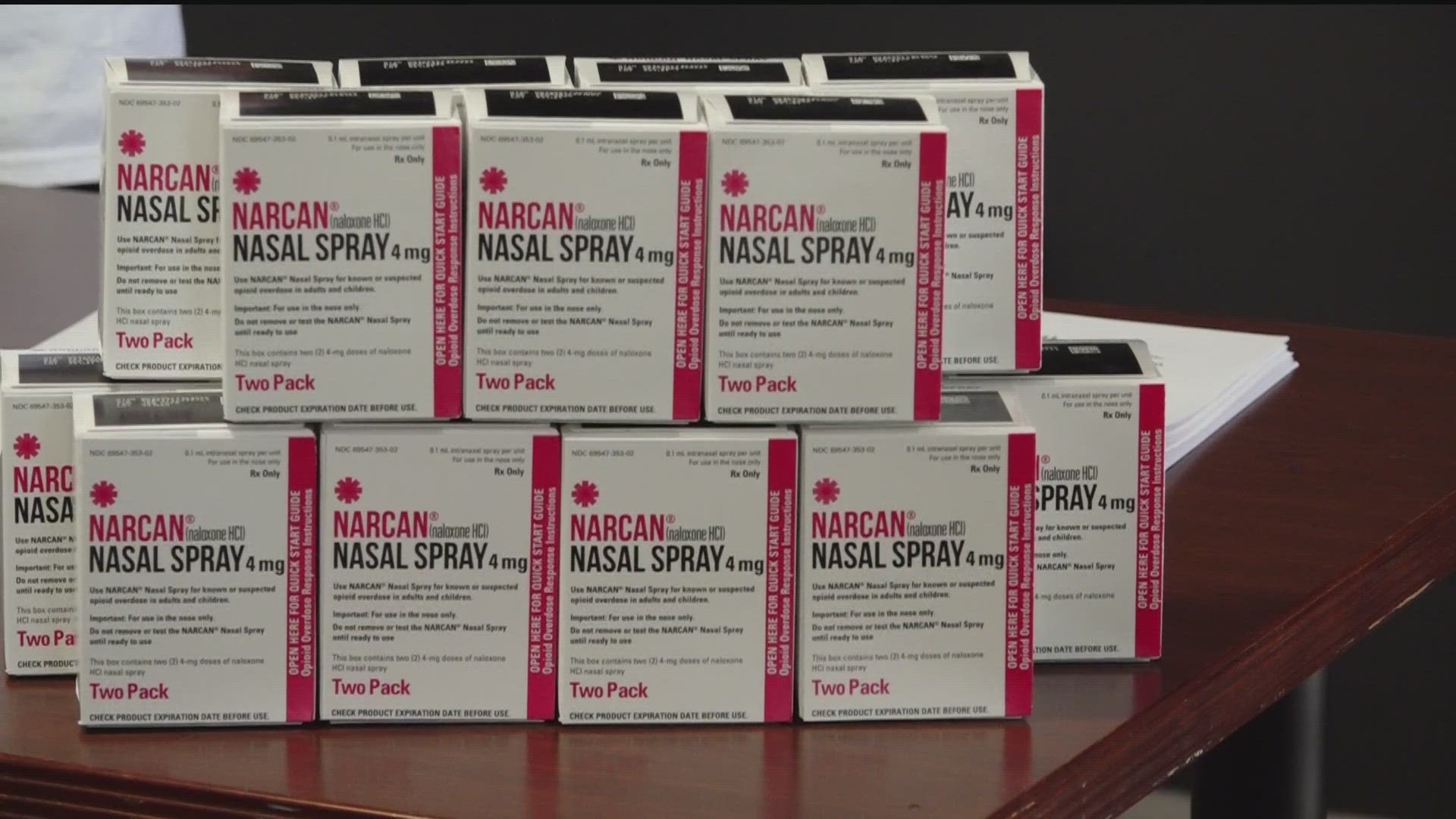WASHINGTON — Narcan, an overdose reversal drug, will be hitting store shelves in September, Emergent BioSolutions announced Wednesday.
The biotech company said the overdose-reversing drug has been shipped to pharmacies, drugstores and grocery stores as well as online retailers. The nasal spray comes in 4-miligram doses and a two-dose box will cost $44.99, according to the manufacturer.
Narcan will be available as soon as Sept. 5 at select Walgreens stores and available nationwide on Sept. 7, the company announced Wednesday.
CVS will have the overdose reversal drug available over the counter at more than 7,000 pharmacies and through the CVS app starting early September, a spokesperson said. The company added that it will offer a delivery or pick-up in store option for "customers who wish to have added privacy."
The announcement comes months after the nasal spray was approved for over-the-counter use by the U.S. Food and Drug Administration – a move that some advocates have long sought as a way to improve access to a life-saving drug.
"Expanding access and awareness is critical given the staggering toll of the epidemic mainly driven by synthetic opioids, like fentanyl," the manufacturer said in a press release Wednesday. "Last year, approximately every seven minutes one life was lost due to an opioid overdose, and today it is the leading cause of accidental death in the U.S."
Narcan, the brand name for the drug naloxone, can reverse overdoses of opioids, including street drugs such as heroin and fentanyl and prescription versions including oxycodone.
Making naloxone available more widely is seen as a key strategy to control the nationwide overdose crisis, which has been linked to more than 100,000 U.S. deaths a year. The majority of those deaths are tied to opioids, primarily potent synthetic versions such as fentanyl that can take multiple doses of naloxone to reverse.
U.S. overdose death rates began steadily climbing in the 1990s, driven by painkillers. Waves of deaths followed, led by other opioids like heroin and — most recently — illicit fentanyl. Nearly 107,000 Americans died of drug overdoses in 2021, an all-time high, though recent data suggests deaths may be plateauing.
In 2021, almost 17 million doses of naloxone were distributed in the U.S., according to a 2023 report by the Reagan-Udall Foundation. More than 84% of those doses given were distributed by local health departments, first responders and other community organizations, the biotech company said.

